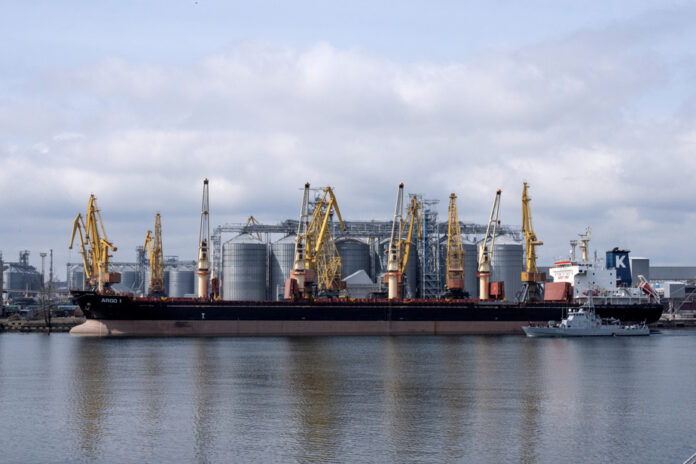(Warsaw) The transit of grain and other agricultural products through Poland, suspended through Warsaw for almost a week, officially resumed on Friday, with the government also announcing significant aid to farmers.
Poland and other European Union countries bordering Ukraine have imposed temporary bans on Ukrainian grain exports following farmers’ protests over collapsing prices linked to the influx.
Ukrainian grain destined for foreign countries transits through the European Union since the traditional export route via the Black Sea was blocked by the Russian invasion.
The transit through Poland of several foodstuffs, including sugar, meat, fruits and vegetables, was authorized from 2 a.m. (8 p.m. Eastern Time), after the entry into force of government regulation.
However, Ukrainian exporters cannot sell these products on the Polish market.
“We assume that the controls will be quite smooth, so far there are no signs that queues will form,” Bartosz Zbaraszczuk, head of Poland’s customs agency, told RMF24 radio. Friday.
The first convoy included five trucks transporting meat, eggs and corn to the Netherlands.
Poland on Saturday banned the entry of dozens of Ukrainian foodstuffs, mainly cereals, in response to protests from farmers.
The decision was taken without consulting either Kyiv or the European Commission, prompting criticism from both sides.
Since the start of the war in Ukraine, grain stocks have accumulated in Poland, driving down local prices, leading to protests and the resignation of Poland’s previous agriculture minister.
Hungary, Slovakia and Bulgaria subsequently also imposed similar temporary bans.
On Tuesday, Warsaw and Kyiv announced an agreement to allow transit through Poland, under strict control, involving the placement of electronic seals with GPS trackers on transport and special transport convoys for a week.
“We will only let such a transport out of sight when it enters a port […] or leaves the Polish border,” Zbaraszczuk said.
Farmers meanwhile remain skeptical of the measures taken by the Polish government.
“If this transit goes to our ports today, it will not solve the situation in our farms and warehouses, because Ukrainian grain and products will replace them, thus competing with our products,” Wieslaw told reporters. Burzynski from the agricultural chamber of the region of Pomerania (North).
To resolve the situation and calm the anger of farmers, Polish Prime Minister Mateusz Morawiecki announced on Friday a major aid package worth ten billion zlotys (about 3.2 billion Canadian dollars) from the budget of State and in particular establishing subsidies for the sale of cereals.
“We use our own resources from the Polish state budget, but the agreement has to come from the European Commission – so that a European official does not knock on the door of a farmer to demand the reimbursement of this payment that we performed,” he added.
The populist government in Warsaw criticizes Brussels for reacting too late to the influx of Ukrainian cereals.


















